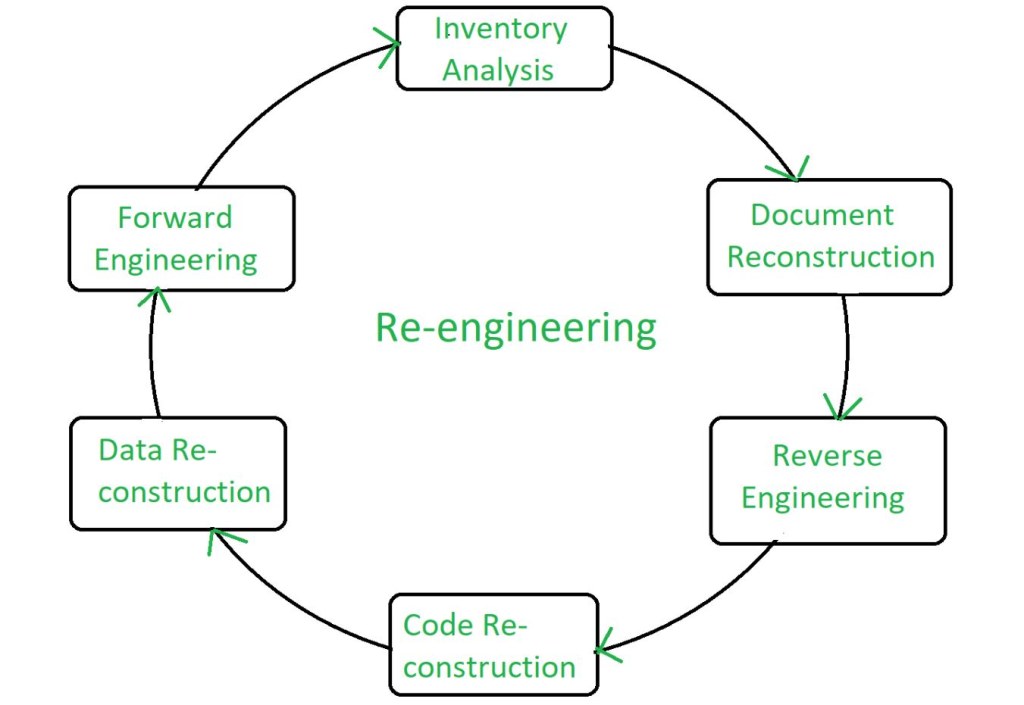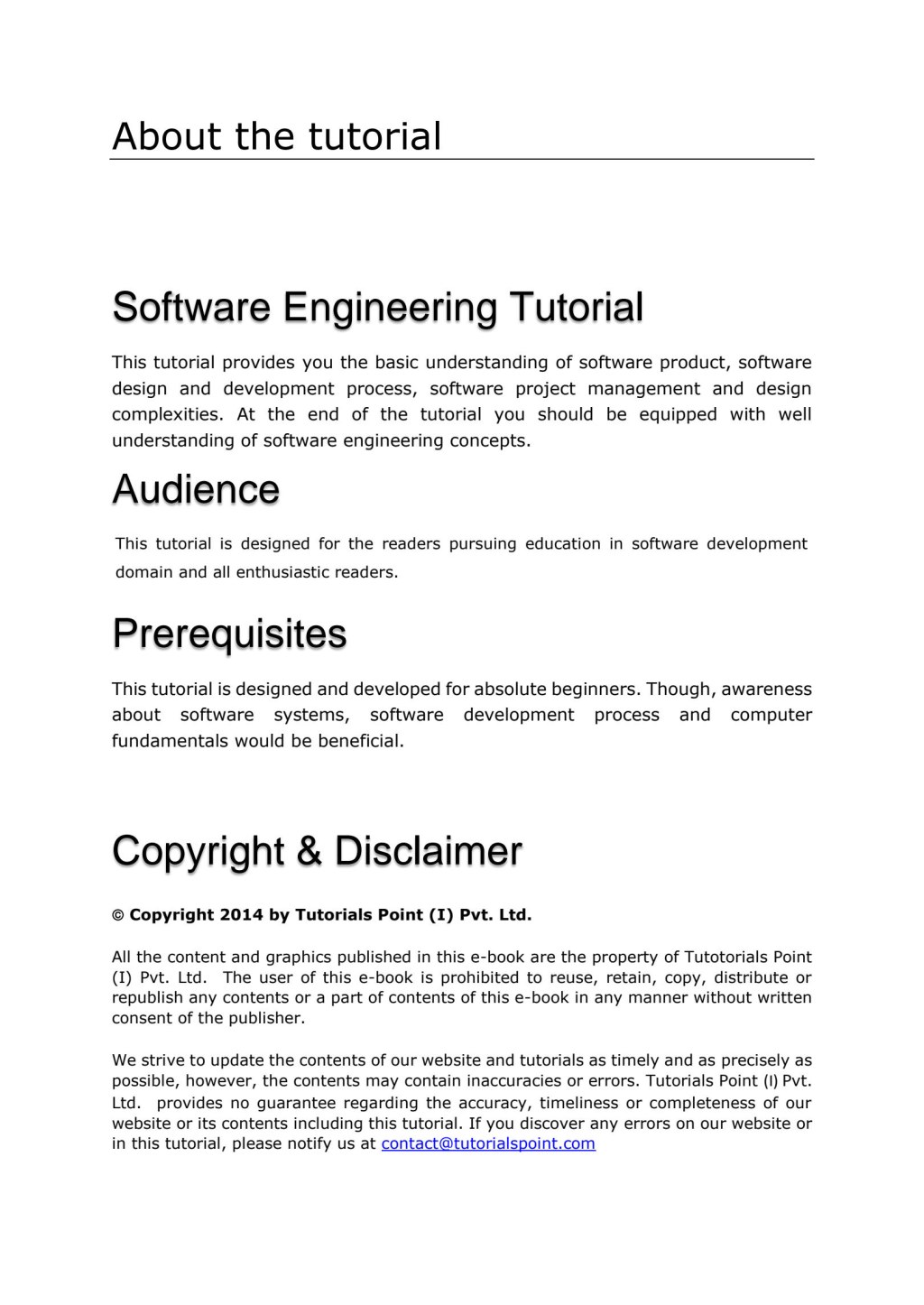Mastering Software Engineering Basics: The Ultimate Tutorial Point For Success!
Software Engineering Basics Tutorial Point
Welcome, Readers! In this article, we will dive into the basics of software engineering. Whether you are a beginner looking to understand the fundamentals or someone seeking a refresher, this tutorial point will provide you with valuable insights. So let’s get started on our journey to explore software engineering!
Introduction
3 Picture Gallery: Mastering Software Engineering Basics: The Ultimate Tutorial Point For Success!



Software engineering is the process of designing, developing, testing, and maintaining software systems. It is an interdisciplinary field that combines principles from computer science, mathematics, and engineering to create reliable and efficient software solutions.
Software engineering encompasses various methodologies, tools, and techniques that enable teams to build high-quality software products. Understanding the basics is crucial for anyone interested in pursuing a career in software development or working on software projects.
Now, let’s take a closer look at the key aspects of software engineering:
What is Software Engineering?

Image Source: geeksforgeeks.org
Software engineering is the application of engineering principles to software development. It involves a systematic approach to designing, coding, testing, and maintaining software systems. The goal of software engineering is to deliver reliable, scalable, and maintainable software solutions that meet the needs of users.
Who are Software Engineers?
Software engineers are professionals who apply engineering principles and techniques to develop software systems. They possess a deep understanding of programming languages, algorithms, data structures, and software development methodologies. Software engineers work in diverse industries, ranging from technology companies to healthcare organizations.
When is Software Engineering Used?

Image Source: amazonaws.com
Software engineering is used in various scenarios, including the development of web applications, mobile apps, desktop software, embedded systems, and enterprise software solutions. It is employed from the initial stage of requirements gathering to the final deployment and maintenance of software systems.
Where is Software Engineering Applied?
Software engineering is applied in industries such as information technology, healthcare, finance, e-commerce, and transportation. It is essential in any domain that relies on software solutions to streamline processes, enhance productivity, and deliver exceptional user experiences.
Why is Software Engineering Important?
Software engineering is important because it ensures the development of high-quality software products. By following engineering principles and best practices, software engineers can create robust and scalable systems that meet user requirements. This discipline also focuses on managing software projects effectively, minimizing risks, and maximizing efficiency.
How Does Software Engineering Work?

Image Source: ytimg.com
Software engineering follows a systematic approach that includes requirements analysis, system design, implementation, testing, and maintenance. Each phase involves specific activities and methodologies, such as agile development, waterfall model, or DevOps. Collaboration, communication, and continuous improvement are key elements of software engineering practices.
Advantages and Disadvantages of Software Engineering
Like any discipline, software engineering has its pros and cons. Let’s explore the advantages and disadvantages:
Advantages of Software Engineering
1. Increased Productivity: Software engineering methodologies and tools enable teams to work efficiently, resulting in higher productivity levels.
2. Quality Assurance: Software engineering emphasizes testing and quality assurance, leading to the development of reliable and bug-free software products.
3. Scalability: With proper software engineering practices, systems can be designed to handle increasing workloads and user demands.
4. Maintenance and Upgrades: Software engineering principles ensure that systems can be easily maintained and upgraded as business needs evolve.
5. Collaboration and Teamwork: Software engineering promotes collaboration among team members, fostering innovation and problem-solving.
Disadvantages of Software Engineering
1. Time and Cost: Implementing software engineering practices may require more time and resources, potentially increasing project costs.
2. Complexity: Software engineering involves dealing with complex systems, requiring skilled professionals and careful planning.
3. Rigidity: Following strict processes and methodologies can sometimes limit flexibility, making it challenging to adapt to fast-changing requirements.
4. Learning Curve: Software engineering concepts and techniques may have a steep learning curve for individuals new to the field.
5. Over-Engineering: Excessive focus on engineering practices can lead to over-engineering, resulting in unnecessary complexity and delays.
Frequently Asked Questions (FAQ)
1. Q: What programming languages are commonly used in software engineering?
A: Software engineering commonly involves programming languages such as Java, C++, Python, and JavaScript, among others.
2. Q: Can software engineering be applied to small projects?
A: Yes, software engineering principles can be applied to projects of any size, ensuring better organization and quality.
3. Q: Are software engineering and computer science the same?
A: While related, software engineering focuses on practical aspects of building software systems, while computer science covers a broader range of topics including algorithms and theoretical foundations.
4. Q: What role does testing play in software engineering?
A: Testing is a crucial part of software engineering as it helps identify and fix bugs, ensuring the reliability and quality of the software.
5. Q: Can software engineering methodologies be combined?
A: Yes, software engineering methodologies can be combined based on project requirements and team preferences, leading to hybrid approaches.
Conclusion
In conclusion, understanding the basics of software engineering is essential for anyone venturing into the world of software development. By following engineering principles, adopting best practices, and leveraging the right tools, software engineers can create robust and reliable software systems. So, whether you are a beginner or a seasoned professional, embrace the fundamentals of software engineering and embark on an exciting journey of building innovative solutions!
Remember, software engineering is a constantly evolving field, so continuous learning and improvement are key to staying at the forefront of this dynamic industry. Start exploring the vast realm of software engineering today and unleash your potential!
Friends, as you delve into the world of software engineering, always keep in mind that practice and hands-on experience are crucial for mastery. So, roll up your sleeves, start coding, and let your imagination soar!
Disclaimer: The information provided in this article is for educational purposes only and does not constitute professional advice. The author and publisher of this article are not liable for any damages or losses arising from your use or reliance on the information provided.
This post topic: Software Tutorials

